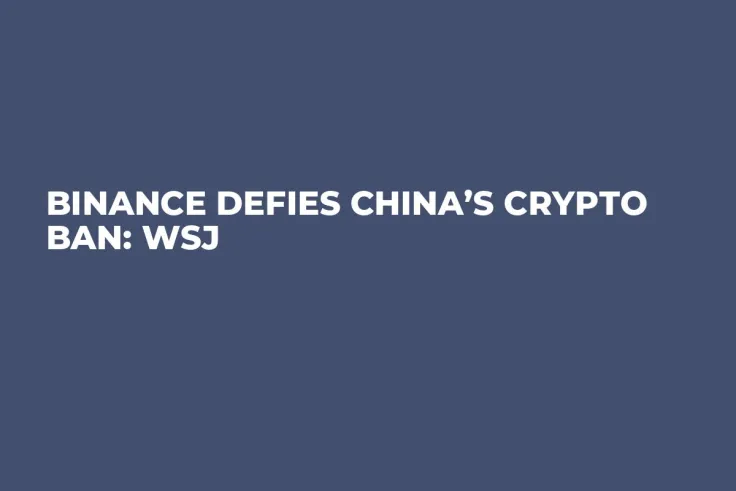
Binance, the world's largest cryptocurrency exchange, continues to operate significantly in China despite the country's ban on cryptocurrency trading.
Recent internal figures reveal that users traded $90 billion of crypto-related assets in China in a single month, making China Binance's largest market, accounting for 20% of global volume, according to a report by The Wall Street Journal.
Despite facing a global regulatory crackdown and allegations of illegal operations, Binance has managed to circumvent restrictions in China by redirecting users through different websites with Chinese domain names.
The company's persistence in operating in China reflects the importance of retaining its Chinese market footprint as it navigates the global regulatory challenges threatening its future.
In March, CNBC reported that Binance's Chinese clients use various techniques to evade the exchange's know-your-customer (KYC) systems, according to leaked internal communications.
These tactics, shared by Binance employees and volunteers, include falsifying bank documents and addresses or manipulating the exchange's systems. This raises questions about the effectiveness of Binance's anti-money laundering efforts and the vulnerability of the platform to illegal activities.
The Financial Times released a report indicating that the world's number one crypto exchange had been concealing significant ties to China, contradicting its claims of leaving the country post the 2017 crypto crackdown.The disclosed information, highlighting the existence of an office used until 2019 and a Chinese bank utilized for salary transactions, has heightened worries regarding Binance's legal complications and suspected ties with the Chinese government.
During a Senate Banking Committee hearing in December, U.S. Senator Bill Hagerty (R-TN) alleged that Binance is controlled by the Chinese government. Despite Binance's denial of any legal entities or ties in China, Hagerty expressed concerns over the lack of transparency regarding the exchange's reserves.

 Dan Burgin
Dan Burgin Vladislav Sopov
Vladislav Sopov